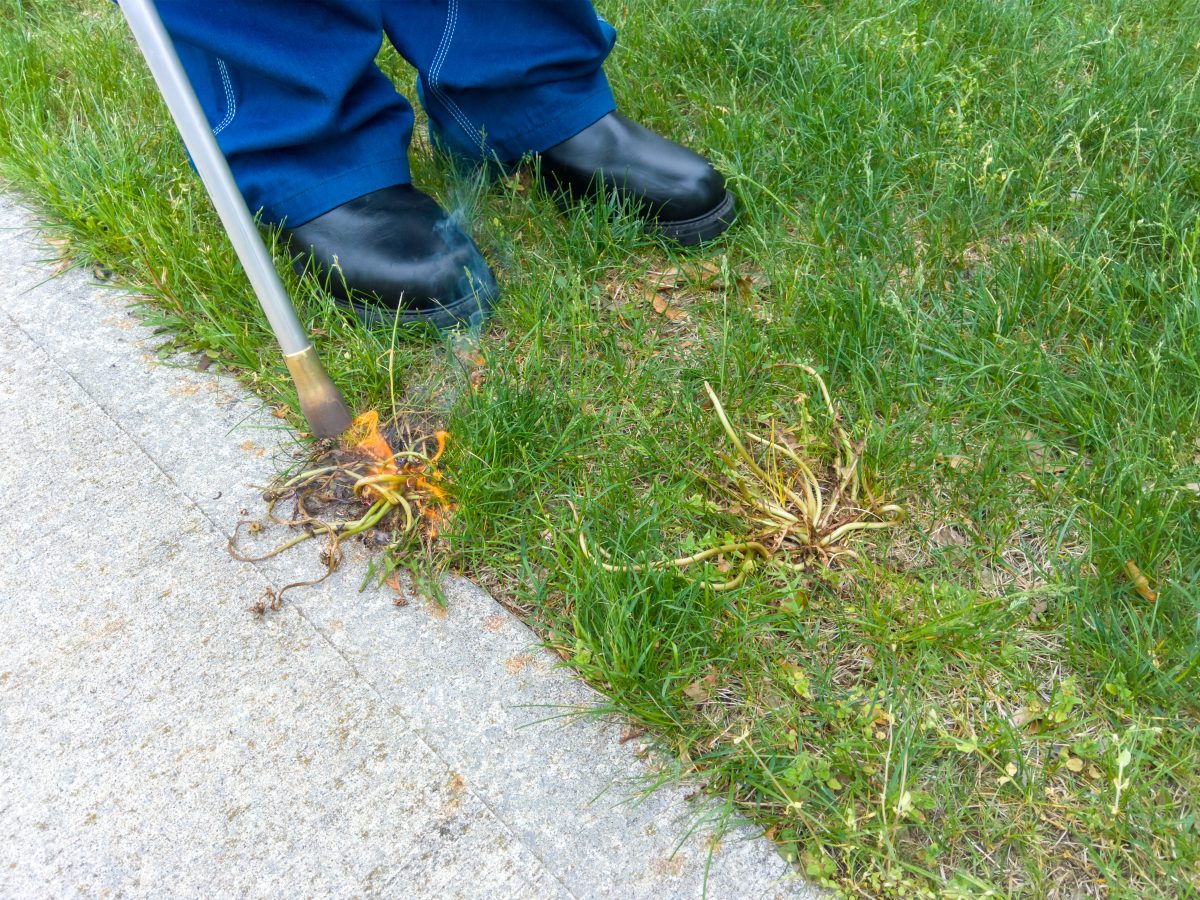
While it may seem like an easy fix for pesky weed problems on your property’s curb appeal—it’s important for me to emphasize: this isn’t always the best approach. It requires careful execution and understanding of both its benefits and drawbacks—something we’ll dive deeper into further along in this article.
The Science Behind Burning Weeds
Let’s dive right into the heart of the matter. Does burning weeds work? To answer that, we need to understand the science behind it.
When you apply heat to a weed, what happens is pretty straightforward. Heat causes cell damage in plants much like it does in humans or any other living organism. If you’ve ever burnt your finger on a hot stove, you know how painful that can be! Well, for weeds (or any plant), being exposed to high temperatures causes similar trauma.
The cells within these pesky green invaders start breaking down due to thermal shock. This results in wilting and eventual death of the plant tissue. It’s important to note though: not all parts of a weed respond equally when burned.
- Leaves and stems: These portions are especially vulnerable as they’re primarily made up of water.
- Roots: Unfortunately for us garden enthusiasts out there, roots are tougher nuts to crack (pun intended). They’re usually buried deep underground where heat from surface-level fires struggles to reach effectively.
As such, while burning may initially appear successful because visible foliage withers away quickly post-burn – don’t be fooled! Many times those resilient root systems stay alive underground only waiting for favorable conditions before sending up fresh shoots again!
For my fellow data-lovers out there who crave numbers as I do:
| Weed Part | Sensitivity |
|---|---|
| Leaves & Stems | High |
| Roots | Low |
So yes – burning does have an impact on weeds but its effectiveness varies based on several factors including type of weed and depth of root system among others.
Now remember folks: Always practice safe fire handling techniques when using flame-based methods against unruly vegetation in your landscape! Fire safety isn’t just about protecting ourselves but also our beautiful Canadian environment around us.
Pros and Cons of Weed Burning
Weed burning, a traditional method of weed control that’s been around for centuries, has its own set of pros and cons. It’s my job as an experienced landscaper to share this knowledge with you.
Starting off with the benefits, one can’t deny the instant gratification it provides. With a propane torch in hand, you can see those pesky weeds shrivel up before your eyes:
- Speed: There’s no waiting period for chemicals to take effect or tools to do their work.
- Efficacy: The intense heat destroys both visible parts and hidden seeds.
- No Chemicals: Unlike herbicides which may pose environmental risks, burning is chemical-free.
However, I’d be remiss if I didn’t mention some important drawbacks too:
- Fire Hazard: This method requires extreme caution due to obvious fire risks involved especially during dry seasons or in areas prone to wildfires.
- Incomplete Removal: While surface parts get destroyed instantly by flame weeding, deep-rooted weeds might regenerate over time.
- Damage Potential: Uncontrolled flames could potentially harm beneficial insects or damage nearby plants.
| Advantages | Disadvantages |
|---|---|
| Speed | Fire Hazard |
| Efficacy | Incomplete Removal |
| No Chemicals | Damage Potential |
In conclusion – yes (pun intended), weed burning does work but it isn’t without flaws. As always in landscaping decisions like these should be made considering safety first along with effectiveness and impact on the environment!
Colin Macmillan is a seasoned entrepreneur and the CEO of Riverwood Landscape, a leading landscaping company based in Canada. He has been at the helm of the company since leaving high school, demonstrating his strong leadership skills and business acumen.
Colin’s expertise lies in various aspects of landscaping, including lawn care, interlocking, sod installation, and commercial maintenance. His hands-on approach and dedication to the craft have been instrumental in building Riverwood Landscape into a reputable brand.
One of his most notable achievements is the creation of a successful landscape franchise that services multiple locations. This accomplishment underscores his strategic thinking and ability to scale operations effectively.
Colin has also had the privilege of working with Guelph Hospital for landscaping and maintenance, a testament to the trust and reliability that his company has earned over the years.
His professional mission is to offer the best services and experiences for customers, a goal that he tirelessly pursues. Colin’s commitment to excellence and customer satisfaction continues to drive the growth and success of Riverwood Landscape.








